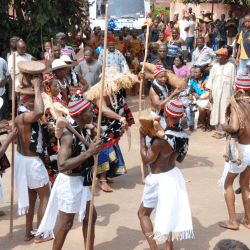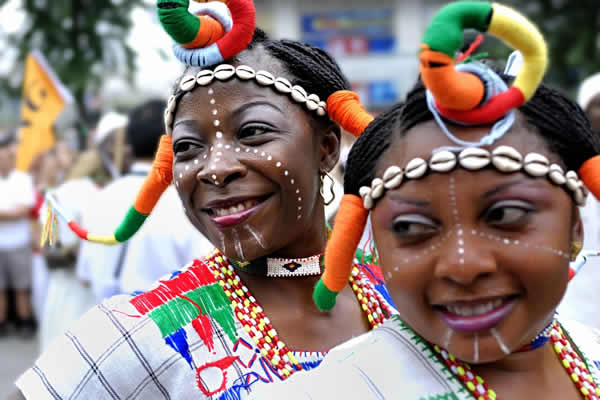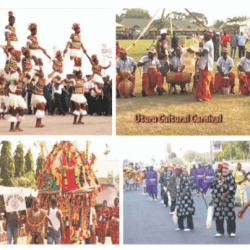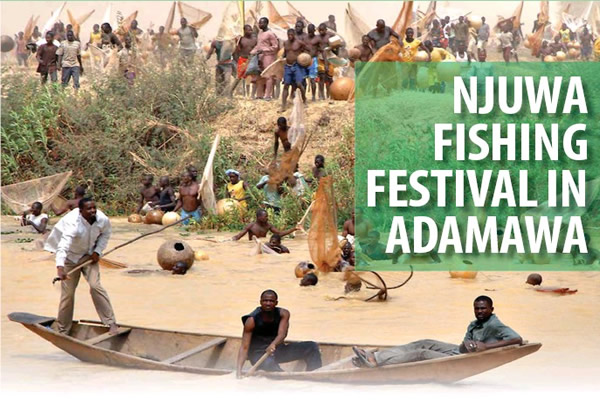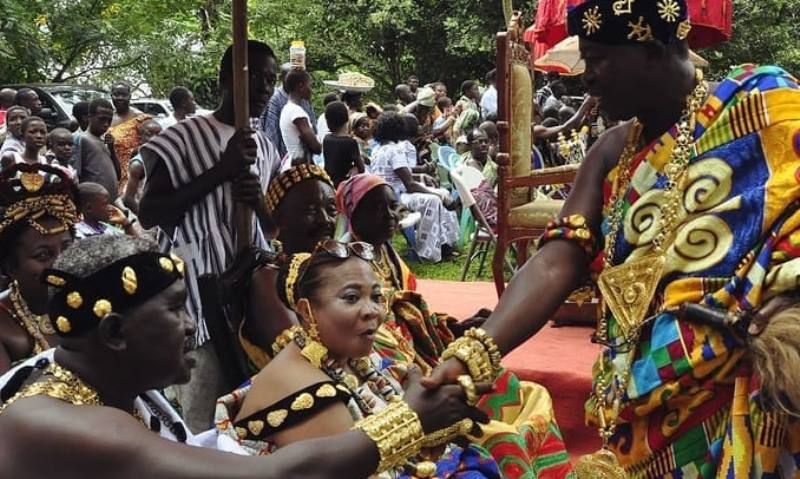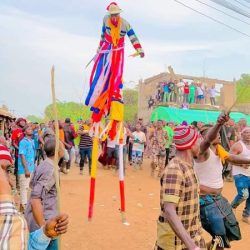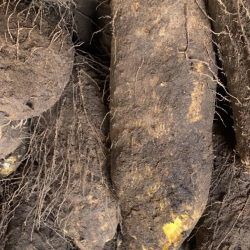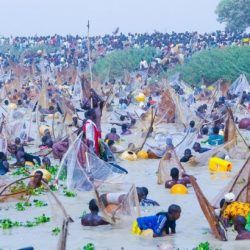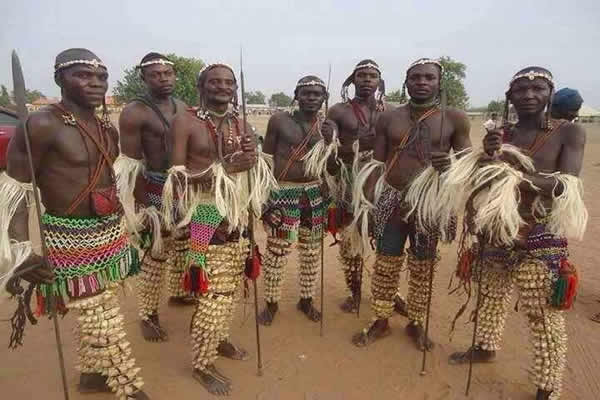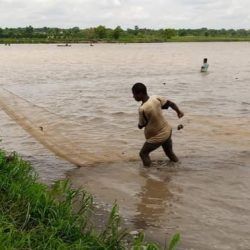IWA JI – THE NEW YAM FESTIVAL IN IGBO LAND
The New Yam Festival popular known as Iwa ji, Iri ji or Ike ji is an annual cultural festival by the Igbo people held at the end of the rainy season in August and September.
The Iri Ji festival is not only practiced in Nigeria but also in Ghana and in some African countries and beyond.

Yams are an excellent source of fibre, high in potassium and manganese, which are important for supporting bone health, growth, metabolism, and heart function. Yam tubers also provide a decent amount of other micronutrients such as copper and vitamin C.
Among the Igbo tribe of Nigeria, West Africa, it is obvious that the most cherished and respected crop is the yam.

While giving credence to the Igbo preference of the yam crop, Chinua Achebe, in his most revered novel, ‘Things Fall Apart’, described yam as the “king of all crops”.
The culture of yam cultivation and preservation is an age-long attribute of the ‘Igbos’ which has successfully travelled from the time of our ancestors down to this day.
The New Yam Festival popularly known as “Orureshi, Iwa ji, Iri ji, Ike ji, or Otute (depending on dialect) is an annual cultural festival by the Igbo people usually held at the end of the rainy season in early August to October every year.
It is one of the traditional and cultural festivities Igbo people do not play with. Without performing this festival as individuals or in groups, no full-fledged or matured man eats new yam in Igbo land.

The festival is done at the community level first. In turn, individuals in their own way and capacity celebrate with members of families and friends, thereby kicking off the eating of new yam in these families that participated in the community ceremony, whether they have money to celebrate with the others or not.
In most families in Igbo land, wives and children can start eating new yam, without the men or heads of the families joining them and this is because the men regard it as an abomination to eat new yam without celebrating it with the ancestors.
For instance, the Afikpo New Yam Festival “IKE JI” is one of the top festivals in Afikpo, Ebonyi State in the South-Eastern part of Nigeria. It is a festival that begins with a series of activities weeks before the final ceremonial day.
First, a large council of elders meets in a serious conference called Ngidi-Ngidi to decide the date of the festival.
Then other activities in preparation for the festival follow in a sequence that is normally dictated by centuries-old traditional practices and timelines handed down from generation to generation.
On the eve of the festival day, a ceremony called “Ichu Aho” takes place between late night and the early morning hours before the festival day. During the “Ichu Aho”, the youths effect a ritual of chasing away the old year away with lit torches and other flammable materials which symbolises clearing the way for the new year to emerge.
As the first day of the year (the festival day) dawns, the locals (of which some of them that are just returning from the Ichu Aho ceremony) offer prayers for the new year and prepare for the feasting that will take place throughout the day.
Most households will expect to entertain immediate and extended family members, neighbours, and visitors from out of town.
The traditional New Yam Festival dish is pounded yam and “the sarara” (a white-coloured soup made with chunks of grounded egusi seeds and assorted meat).
The rest of the day is spent exchanging visits, gifts (especially for children who visit uncles and cousins) eating, drinking, and catching up with folks.
Some family groups and town associations also use the occasion to host annual meetings and fundraisers for various projects.
Also, the Abiriba new yam festival is characterised by special ceremonies like the annual dance of the maidens from Amanta in Ameke community of Abiriba Kingdom.
These maidens who are also believed to be virgins, pure and undefiled by any man, perform this sacred dance. It is also the time the young girls who are now ripe enough for marriage show off their beautiful figures and dancing prowess to young men from Amanta and other prospective husbands from other communities making up the Abiriba Kingdom.
There is usually great excitement towards this dance, especially to the young men who see it as an opportunity to get their brides.
These festivals symbolise that the year is fruitful and that harvests are bountiful.
